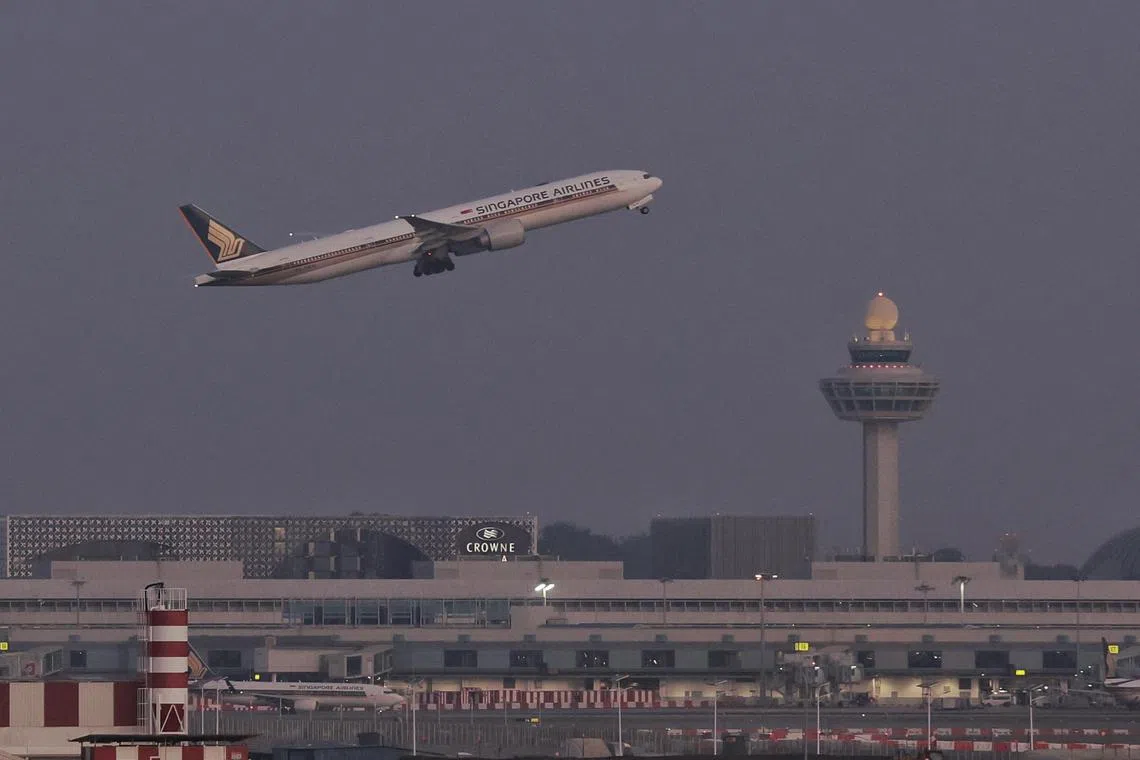CAAS to set up new air traffic control centre housing data scientists, weather experts
Sign up now: Get ST's newsletters delivered to your inbox

This centre aims to pool expertise and resources by getting professionals from various fields to work closely with each other.
ST PHOTO: KEVIN LIM
SINGAPORE – A centralised command centre that will bring together air traffic controllers, data scientists and meteorological specialists will be set up in Singapore over the next few years to improve the way flights here are managed.
This centre, which will be established in stages by the Civil Aviation Authority of Singapore (CAAS), aims to pool expertise and resources by getting professionals from various fields to work closely together.
This will encourage the exchange of ideas so that air traffic controllers can make better sense of information and optimise their decision-making, Senior Minister of State for Transport Amy Khor said on April 15.
She was speaking at the opening of the 63rd International Federation of Air Traffic Controllers’ Associations (Ifatca) annual conference, which was held at the Grand Copthorne Waterfront hotel.
In announcing plans for the new centre, Dr Khor said it will serve as a test bed to advance air traffic management here, as post-Covid-19 global air passenger traffic continues to rise
The Asia-Pacific region is expected to have the fastest growth in the next two decades, she added.
She did not provide more details about the centre or when it will be ready.
Dr Khor also pointed to the growing complexities that will come with the introduction of new concepts of operations and new airspace users such as unmanned aircraft.
“We must innovate in order to achieve the global vision of an integrated, harmonised and interoperable ATM (air traffic management) system,” she added. “We will need new tools and skill sets to equip (air traffic controllers) for this significant change.”
Separately, in May, CAAS will be publishing a safety culture handbook for the aviation sector here.
Applicable to aviation companies and professions that include air traffic controllers, pilots and engineers, the handbook will explore factors that shape safety culture like communication styles and team dynamics, Dr Khor said.
It will also provide practical guidance, including dos and don’ts and relevant case studies, she said.
CAAS said the handbook was developed based on the findings of a 2023 survey
In her speech, Dr Khor said building a positive safety culture, encouraging innovation, and attracting and developing talent are three areas that will enable the air traffic management sector to be better prepared for the busier skies ahead.
She lauded the professionalism, adaptability and commitment of air traffic controllers throughout the Covid-19 pandemic.
“These are traits that will see you through changes in the operating context, including geopolitical conflicts, as we are experiencing now, and tensions that pose a threat to international flights,” she added, noting that human experience and expertise cannot be fully replaced by technology.
Ifatca president and chief executive Duncan Auld said air traffic control is not as attractive as it used to be, and there is a need to hire and retain the right people now and into the future.
Hiring a diverse mix of controllers will ensure resilience in the longer term, as the nature of the profession may change with the addition of more technology, Mr Auld added.
Stressing the importance of the human element in this field, Dr Khor cited the ongoing $120 million upgrade of the Singapore Aviation Academy, which will be completed in 2026.
“This will allow us to nurture next-generation (air traffic controllers) who are equipped and empowered for the future,” she said.



